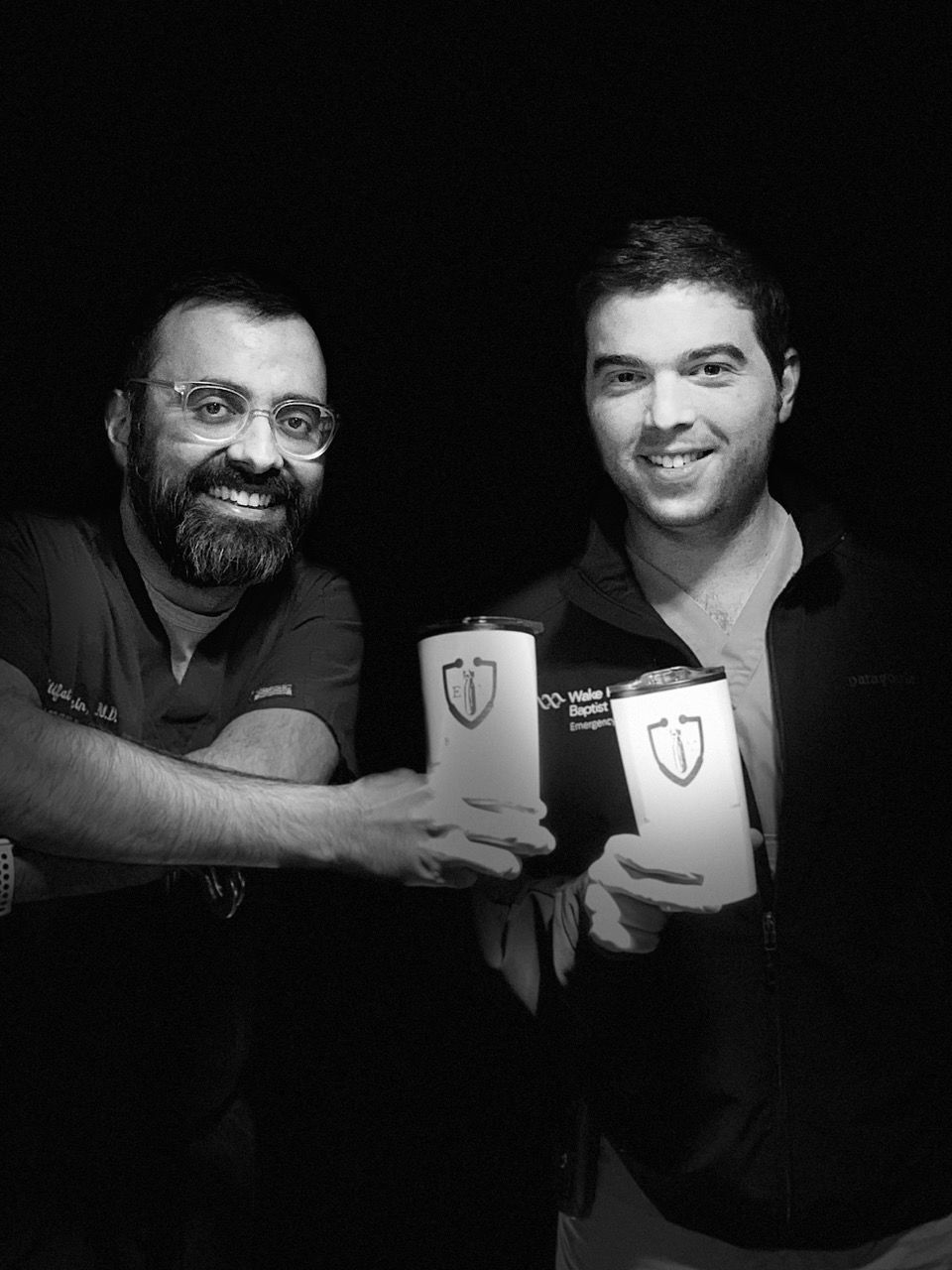Ask Me Anything
with EM Rapid Bombs - Emergency Medicine Board Review Question and Answer Podcast
Subscribe to ask a questioni listened to the methemoglobin lecture .. I was thinking when go from ferrous to ferric state actually loose electrons .
I think when go from ferrous to feric state you actually loose electrons not gain electrons. Not that it matters of course just had flashback to chemistry . Thanks for all you do . It is a great product !
Sodium Bicarbonate dilemma
Hello, I have a few questions about the administration of sodium bicarbonate in patients with metabolic acidosis, such as those with DKA or CKD. We're facing a dilemma regarding when to administer sodium bicarbonate. Should we base our decision on the clinical appearance of the patient or strictly on ABG or VBG results? What is the consensus on the pH level at which sodium bicarbonate should be given? Some sources suggest a pH of 6.9, while others, especially critical care colleagues, recommend administering it at a pH below 7.2. Additionally, some internal medicine colleagues suggest administering sodium bicarbonate based on clinical signs like Kussmaul respirations. Lastly, could you advise on the appropriate dosage of sodium bicarbonate? I apologize for the multitude of questions, and thank you in advance. I'm a big fan of your podcast!
Malfunctioning pacemaker
In a non-hospital environment such as a cruise ship, how can I handle a situation where a patient has a malfunctioning pacemaker that is continuously firing and causing them pain? i hope you can make an episode regarding this topic. Thank you and more power to your podcast!
PRE HOSPITAL CARE SETTINGS
Hi! I'm a new subscriber. I live in the Philippines. I really love your Rapid Bomb podcast. For the past 2 years we are being drilled with pre hospital care questions in our in service exam. Can you do some topics or high yield questions, or even study guides regarding PRE HOSPITAL CARE. Our training in EM residency here in the Philippines is purely Tintinalli based, other than our local guidelines. Thank you and more power to your podcast.
Pacemaker/ICD pocket infection
Hello, When you see patiënt with fever, after recent pacemaker placement. How do you diagnose and treat a pacemaker pocket infection? Can you aspirate the pocket? can you use Ultrasound,… what kind of antibiotics… Would love to have an episode about this topic
Atraumatic Neck Pain
1. Thanks for the Great Episode about Hypophosphatemia, really like the Pearl about Low specificity/diffuse nature of the Hypophosphatemia Symptoms but to know who you should suspect having this Electrolyte abnormality 2. i wanted to ask you if you could an Episode of atraumatic posterior neck Pain since it is a very Common complaint Thank you! Your Podcast is just amazing!
Abdominal pain or Adominal pain
Three ask me anything questions: 1. I've always been curious if Blake says the B after the A in abdominal pain 2. Is there a way to synchronize the audio during each pod because I've noticed the audio levels vary quite a bit and sometimes it's a bit hard to understand during drives in the car. 3. How can I get involved with pods or content creation? Would like to contribute as a new attending learning soooooo much about community medicine after training in an ivory tower :)
Rapid Quiz #2 - Answers
1) ______________ related hypercalcemia is the leading cause of hypercalcemia in hospitalized patients. In addition to IV fluid boluses, with SEVERE hypercalcemia related to _______________, you need to give IV ________________ IMMEDIATELY. 2) Classically _____________[pick one, venous or arterial] hemorrhage accounts for 90% of bleeding from pelvic fractures, and _____________[pick one, venous or arterial] bleeding accounts for only 10%. Hemorrhage due to pelvic fracture remains a major cause of mortality and morbidity in trauma patients. 3) Wine and cheese toxicity from MAO inhibitors symptoms: temperature? Heart Rate? Blood pressure? Skin? Pupils? Mental status? Everyone knows high tyramine content foods (cheese, alcohol, dried meats) and MAO inhibitors don't mix, but do you know the overall toxidrome they present with?
Coaching summaries from Question 1 through 50!
Due to popular request, we have taking the coaching summaries and distilled them into one document. Make sure you're logged in to see the answer with all the summaries! We went through and cut the summaries down significantly so that they would be distilled down to key things you need to know.
Question 8
In the podcast it says after 2IM epi, you start a drip- which is what I do in my practice as well. However, one of my Rosh or Peer9 questions said that after IM, you should try a bolus IV dose of 0.1mg in 10ml NS bag, followed by a drip if that doesn't work... any credebility in that?
Question about Episode 1 Question 1 (anticoagulant choices)
Question 1 briefly mentions the reversal of several anticoagulant drugs (warfarin, DOACs, etc). You mention andexanet alfa and PCC (prothrombin complex concentrates). Could you explain when each of these would be correct and why? Thanks! Love the content and the idea is cool, looking forward for more bombs.

